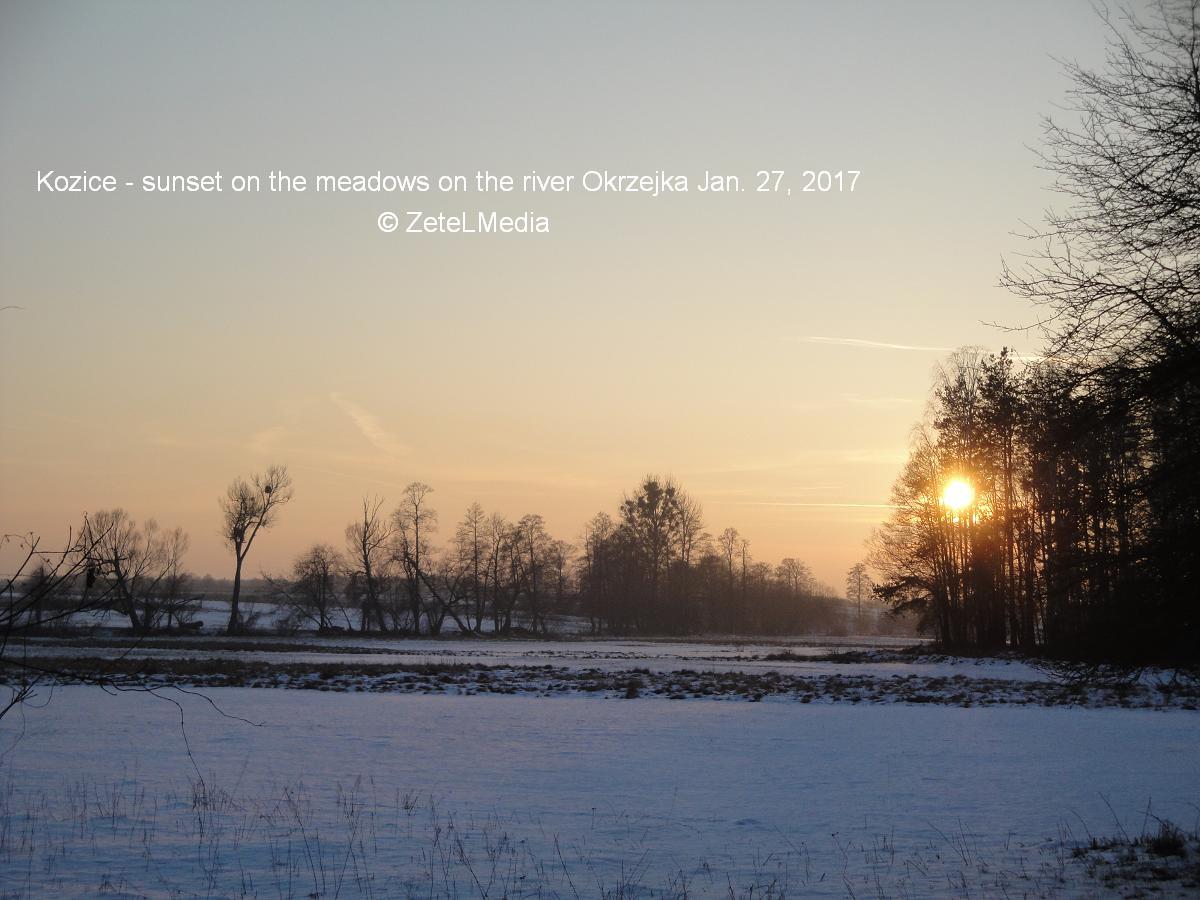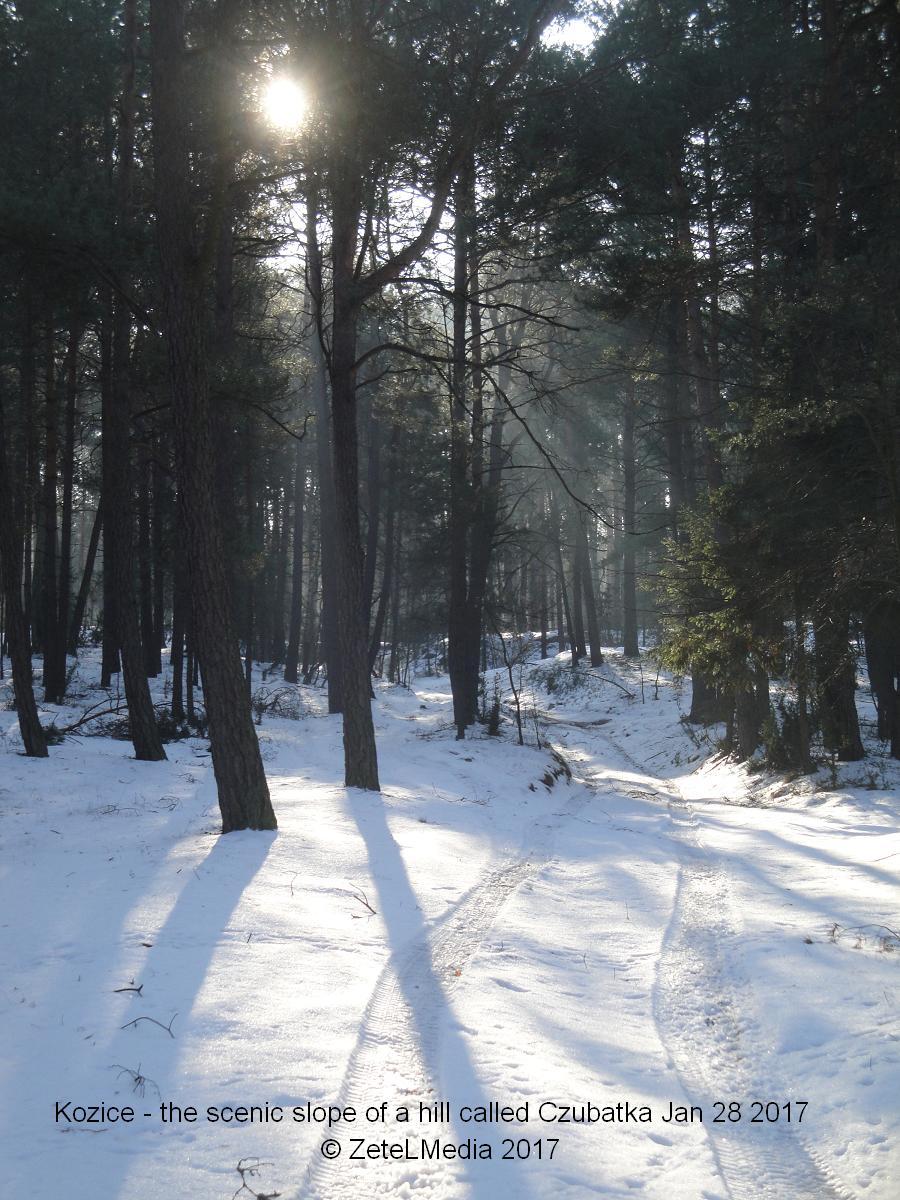(5/6)
Stukot żołnierskich butów wypełnił obszerne wnętrze świątyni. Zaskoczeni ludzie szybko usuwali się z drogi i leśni zatrzymali się w samiutkim środku kościoła, pod najwyższym punktem łukowatego sklepienia.
„Do nogi broń”, „Do śpiewu przygotuj się” zarządził mocnym głosem dowódca.
I zaczęli….
BOŻE, COŚ POLSKĘ PRZEZ TAK LICZNE WIEKI
OTACZAŁ BLASKIEM POTĘGI I CHWAŁY…
Ludzie oniemieli. Chyba gdyby sam Chrystus zmartwychwstały pojawił się wobec nich, nie byłoby większego osłupienia. Tu, teraz, w samym środku wojennej zawieruchy stoją polscy żołnierze. O, Jezuniu miłosierny, o Matko przenajświętsza, czy to się dzieje naprawdę?
Płacz jakiś ogromny targnął ludziskami, szloch z samego dna serc udręczonych. Teraz stali przed obliczem Boga samego skarżąc mu się jak dzieci na poniżenie, krzywdę, cierpienie niezmierne. Szlochały z początku baby i wiejskie dziewczęta, potem twarde, zawzięte męskie serca poddały się, dały folgę temu co już się w nich pomieścić nie mogło i szczerymi łzami płynęło jak Okrzejka wezbrana przy wiosennych roztopach.
I cały kościół zakołysał się, podniósł i miejsce uczynił dla tej energii rzewliwej a potężnej, która gdyby na jaką przeszkodę teraz trafiła, zmiotłaby ze szczętem.
I wszyscy kontynuowali razem z młodymi chłopcami w mundurach hymn mesjańskiego narodu na poły śpiewając, na poły zaś wyrzucając z piersi z wysiłkiem szloch i słowa: „Ojczyznę wolną racz nam zwrócić Panie”.
cdn…
(5/6)
Clatter of the soldiers’ shoes filled the church interior. People, taken aback, swiftly stepped aside and the ‘men of the wood’ stopped in the very center of the church, just under the highest point of the arched vault. The commander kept giving successive commands: ‘Present arms’, ‘prepare for singing’. And they started to sing loudly… „BOŻE, COŚ POLSKĘ PRZEZ TAK LICZNE WIEKI OTACZAŁ BLASKIEM POTĘGI I CHWAŁY…” [a particularly significant patriotic hymn and invocation for God, sung solemnly, with much emotion].
People stood speechless, absolutely dumbfounded. Had Jesus manifested himself in the church, there could not have been more stupefaction. Now and here, in the middle of the turmoil of war, of German ruling, the Polish soldiers stand and sing in the church. Oh, Jesus, Our Lady, is it truly happening???
The violent weeping, the sobs deep down the tormented hearts swept people. They stood now, under the face of God, airing their series of complaints of humiliation, wrongs and enormous suffering . Firstly, the village women and girls produced spasms of sobs but later even tough male hearts surrendered, a wave of grief kept rising and at one point it overfilled and tears flew widely like water over the banks of Okrzejka during the springtime thaw.
And the whole church rocked and rose giving place for this powerful portion of energy which could trample any obstacle if found on its way. And then they all, along with the soldiers, continued with the invocation of this messiah nation , partly singing painfully or rather sobbing and uttering words : „Ojczyznę wolną racz nam zwrócić, Panie”. “Fatherland, freedom, please give them back to us, o Lord!”
[First verse of this patriotic song went like:
God! Thou surrounded Poland for so many centuries
With the grandeur of might and glory,
And with the shield of Your almighty protection
From ill fortunes that were to oppress her.
(refrain:)
Before Your altars we carry our imploration:
Fatherland, freedom, please give them back to us, o Lord!]
to be continued…

